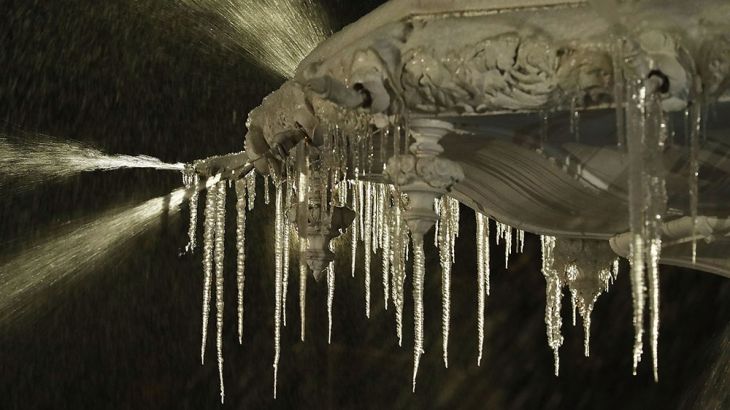‘Bomb cyclone’ smashes eastern US
A rare winter storm brings Florida’s state capital its first snow in decades.

After more than a week of below-freezing temperatures in the US Northwest, a winter storm has hit the Southeast.
The storm has already brought snow and freezing rain as far south as Florida and is likely to be one of the fastest developing storms in recent decades.
Keep reading
list of 4 itemsAfter the Hurricane
World’s coral reefs face global bleaching crisis
Why is Germany maintaining economic ties with China?
A storm which develops this fast is sometimes referred to as a weather “bomb”, and this storm has been dubbed a “bomb cyclone”.
Firefighters scrambled to rescue motorists from flooded streets in Boston, National Guard troops were mobilised in the Northeast, and New York City’s two main airports halted flights because of whiteout conditions, according to a report from the Reuters news agency on Thursday.
The governors of Florida, Georgia, Virginia and North Carolina declared states of emergency ahead of the severe weather, warning residents to expect icy roads and unusually low temperatures. Four people were reportedly killed in North and South Carolina after their vehicles ran off roads.
![Snow covers the boardwalk of Atlantic City on Thursday [Mark Makela/Getty Images/AFP]](/wp-content/uploads/2018/01/f7c2e14e564c4c8f9dcff1c174d23a5f_18.jpeg)
The snow in Tallahassee was the first snow seen in Florida’s capital for three decades. Only a few millimetres of snow fell in Tallahassee, but in other southeastern states there was far more.
Ellabell, Georgia reported 15cm of snow; Summerville in South Carolina was coated in 18cm; and Pinehurst, North Caroline received 15cm.
As well as snow, the storm also brought dangerous freezing rain – rain that falls as liquid, but instantly freezes when it hits the ground. This covers everything in a layer of ice and is highly dangerous.
Power outages and flight cancellations
The treacherous weather forced the closure of an 80km stretch of Florida’s Interstate 10.
As the winter storm moved north along the coast, it was deepening rapidly. A major blizzard was expected to hit New England and Canada’s New Brunswick. In the Canadian province of Nova Scotia, more than 80,000 customers reportedly experienced power outages on Thursday evening.
![Snow covers a street in Stamford, Connecticut [John Moore/Getty Images/AFP]](/wp-content/uploads/2018/01/49c3961aa0d04032aa9b2a27044d2f83_18.jpeg)
Thousands of US flights were cancelled or delayed, with the New York and New Jersey port authorities noting that flights at JFK would not resume until Friday morning.
The region at risk stretches from Virginia to Maine. There is a risk of power cuts, which are likely to pose a greater risk than usual due to the extreme temperatures.
Behind the snow storm, an Arctic surge will bring frigid air across the region over the next few days.
Temperatures are likely to drop below freezing even in Central Florida and a few places could even set new record lows.